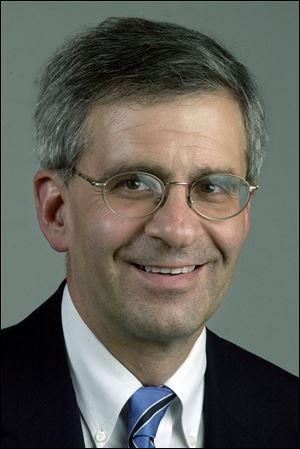
COMMENTARY
For perspective on Russia, let Obama come to Berlin
8/16/2014
Shribman
BERLIN — For more than a half-century, this was a capital in moral isolation — and the capital of moral isolation.
Throughout the reign of Adolf Hitler, Berlin warped the physics of Europe. It was at the center of Europe geographically but utterly isolated morally.
Then, from the Berlin airlift of 1948-1949 to the construction of the Berlin Wall in 1961 and all the way to the collapse of the wall in 1989, East Berlin was isolated both geographically and morally. It sat behind a concrete barrier designed to keep its citizens fleeing from a country, East Germany, that was little more than a police state stuffed with swimmers, rowers, gymnasts, and spymasters.
Today, Berlin is a bustling city of commerce, parliamentary government, even tourism. A visitor is drawn not only to the beer gardens and the marvelous food court on the sixth floor of the city’s trademark department store, KaDeWe, but also to the macabre sites of Nazi tyranny and communist despotism.
Indeed, right across the street from the Brandenburg Gate is an explanation for tourists of the Berlin Wall. The account is in German, English, French — and Russian.
It is hard to repress the thought that the presence of a Russian-language narrative on the tourist kiosk is anything but a rebuke, a not-so-subtle reminder of the Soviet role in dividing the city with a partition.
Berlin is no longer isolated, though the memories from World War II and the Cold War remain searing. But Berlin still stands as a symbol of how ancient capitals of great nations can become isolated.
The obvious modern analogue is Moscow, today morally isolated from nations on every continent.
The rest of the world rooted for Russia when communism fell. Green shoots of democracy were visible, and early signs of productive capitalism were evident. Today, of course, we know that the democracy was ephemeral and the capitalism was held hostage by a crude cartel of oil oligarchs and business gangsters.
All that was before the separation of Crimea from Ukraine, the testing of a cruise missile in violation of an arms-control treaty, and the downing of a Malaysian plane. Russia has become an international pariah — a phrase used by the Financial Times, which added that “a dark new era in East-West relations will begin.”
Berlin offers lessons from some of the most tragic episodes of the 20th century. Now we are deep into one of the signature episodes of the 21st century.
It occurs as Germany is asking whether Hitler’s Mein Kampf should be allowed back into print; its copyright is held by the state of Bavaria and expires in 17 months. I’m inclined to argue that the book — though hateful, though repugnant, though impenetrable — should be available in print, and my argument is rooted in both of the tragedies for which Berlin stands as a symbol: Nazism and Soviet communism.
Both ideologies stood firmly against the principal value of the Enlightenment — the free flow of information and the freedom to examine the assumptions upon which every culture and country is founded.
In famous commencement remarks in 1953, Dwight D. Eisenhower railed against the barriers to free thought that communism represented in the Cold War. “Don’t join the book burners,” he said. “Don’t think you are going to conceal faults by concealing evidence that they ever existed.”
Today, a visitor to Berlin who walks along the streets where books once burned inevitably thinks, too, about the journey, more than five decades ago, of Mr. Eisenhower’s successor, another veteran of World War II, to the divided city.
John F. Kennedy’s speech on that occasion is remembered for the Ich bin ein Berliner flourish. And yet the paragraph that follows is perhaps more searing: “There are some who say that communism is the wave of the future. Let them come to Berlin. And there are some who say in Europe and elsewhere we can work with the communists. Let them come to Berlin.”
The Kennedy speech required real courage, far more so than that of presidential candidate Barack Obama, who undertook a trip to the city in 2008. One was a challenge to Nikita Khrushchev, the other a challenge to Sen. John McCain.
Today, Vladimir Putin stands in a position not so different from that of Mr. Khrushchev, in opposition to all the Enlightenment values cherished in the West.
So perhaps this is the time Mr. Obama truly is needed in Berlin. Perhaps this is the time for an American president to stand before the Brandenburg Gate and to throw a challenge to a Russian tyrant. Indeed, as the 35th president might say across more than a half century to the 44th: Let him come to Berlin.
David Shribman is executive editor of the Pittsburgh Post-Gazette.
Contact him at: dshribman@post-gazette.com.